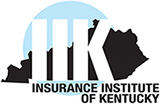Municipal Emergency Response Fees (Accident Taxes)
Background on Emergency Response Fees
In many states, particularly in the Midwest, many local communities have begun the practice of instituting “emergency response fees” that are billed to those involved in an auto accident or other incidents that require a response by emergency first responders. These fees charged are in addition to the taxes already paid by local residents for these same services.
Often these ordinances are passed after a local government is solicited to do so by a for-profit company which offers to bill and collect these fees in exchange for a hefty percentage of the fee. Supposedly, everyone wins: the local government gets more money at no cost, the company profits, and the person involved in the accident has his fees covered by insurance.
Problems for Consumers
There’s only one problem – insurance does not usually cover these fees. While some fees could be covered under some circumstances, such as the charge for a fire department to respond to a house fire, most of these fees are not covered by standard auto or homeowners’ policies. Therefore, the people billed for the fee are left holding the bag. They can now ignore the billings and hope that they are not reported to the credit bureau or that the fees will be waived, or they can pay them out of their own pockets.
When a local taxpayer is left with a bill for several hundred dollars after he or she has already paid taxes for those services, he probably is entitled to believe that he has been taxed twice for the same thing. This is not an uncommon result of these ordinances, and therefore many local governments have repealed the fees after facing a huge public outcry.
Sometimes the ordinances will attempt to get around the issue of billing local residents by claiming to bill only those at fault for auto accidents, or by billing only non-residents who have not paid taxes locally. There are problems with both these approaches.
The problem with billing only those at fault is that this would require a clear-cut decision to be made by the emergency responders as to who is at fault in an accident. While liability may be clear-cut in many cases, it is hardly the case in all accidents. There is often some liability to be assessed to each driver, and emergency responders would not be in a position to make the call on how much should be assessed to each driver, or which driver should be charged. This would be especially true of non-police responders who do not investigate the accident.
There is also a difficulty associated with billing only non-residents. If there are non-residents who work in the tax jurisdiction in which the accident occurred, it is likely that they are paying license tax on their wages earned in that jurisdiction, and therefore are taxpayers. On the other hand, residents of the local jurisdiction who work outside the city may not be billed even though they have paid no local taxes. Finally, if the non-resident is from out of state, then his assessment could conceivably be improper since the Commerce Clause of the U.S. Constitution prohibits disparate treatment of non-residents compared with residents of the state.
The final argument is that there is no such thing as taxes or fees which cost no one anything. If the insurance companies do pay the fees, then eventually rates must rise to cover those costs. If the fees are paid by the person billed, then they have been taxed double for the same service.
IIK’s Position
Some states have passed legislation restricting or eliminating these fees, or are considering such legislation. IIK is very concerned about the possibility that this practice could become much more widespread in Kentucky. We plan to keep a watchful eye on developments around the state. Anyone who hears of local jurisdictions which are considering ordinances to charge these fees can feel free to contact us at IIK
More Information
For those interested in learning more, there are excellent sources of additional information at the Insurance Information Institute, and from the American Property Casualty Insurance Association (listed as PCI before its merger with the American Insurance Association here, here, and here. Another excellent source of information is located at AccidentResponseFees.com, a website devoted to educating local officials and consumers on accident response fees.
